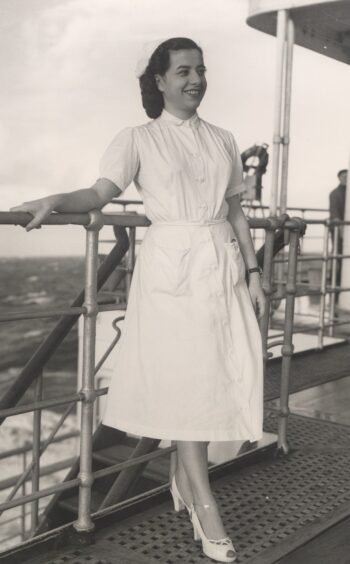François Drémeaux est lauréat d’un financement Marie Skłodowska-Curie Actions Global Fellowship 2022, pour conduire une recherche intitulée « SHIPPAN – A transnational history of health control and hygiene onboard of liners (1894-1946) ».
Il sera accueilli 24 mois à l’Université de Sacramento, puis de retour 12 mois à l’Université d’Angers avant un séjour recherche de 4 mois auprès de French Lines & Companies. Le grant agreement est en cours de finalisation.

Abstract
The Covid-19 pandemic that has shaken the planet since 2020 put mechanisms of globalisation to the test and shows that free movement of people and goods rests on fragile foundations. A better understanding of the societal issues at stake requires a step back to the Late Modern period. From the second half of the 19th century onwards, colonial empires were at their peak, with wellestablished situations of domination on trade routes. Steam navigation brought people closer together, reducing distances and increasing chances of contagion. Meanwhile, medical and hygienic progress made it possible, if not to cure, at least to better identify and contain epidemics.
This innovative project will provide a social history of health at sea during the first half of the 20th century. A necessary transnational approach to break from the local case studies on a global topic in its essence. The study aims at understanding how empires dealt with pandemics, how sanitary control was managed onboard and wishes to explore how health management was, above all, a personal issue for seafarers and passengers. Such an overlapping of scales allows to study official sanitary regulations as well as concrete hygiene habits, to compare the development of medical station and staff onboard and the implementation of new means of control (health checks and passports, hospital ships, massive vaccinations, etc.). Shipping lines were at the forefront of progress in terms of sanitary risk management.
Global History needs anchors to remain feasible: Hong Kong, Marseille and San Francisco will serve as landmarks. The programme is designed from an excellent knowledge of French and Hong Kong maritime archives, and from the need to explore American material in order to propose a complete and effective approach. The chosen host institution and supervisor are also the driving forces behind this research as they offer an innovative and challenging vision of imperial, social and intersectional history.
